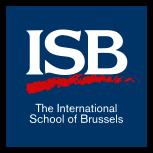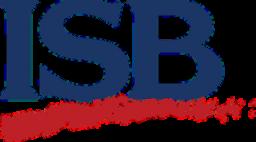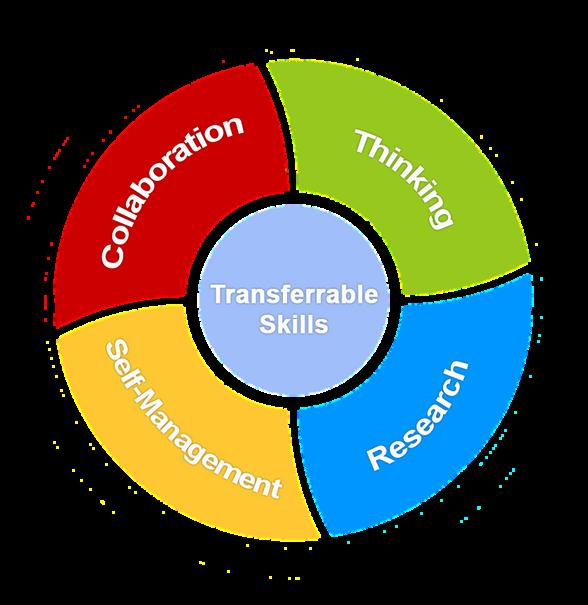THEGRADE1EXPERIENCE KeyDevelopmentalMilestones Grade1marksapivotalstageinachild'sacademicandpersonaldevelopment, characterisedbynotablemilestonesthatlaythegroundworkforfuturelearning.One significantachievementduringthisperiodistheacquisitionoffundamentalliteracy skills,asstudentstransitionfromreadersofsimplesentencestoexploringand readingawholerangeofdifferentandexcitingtexttypes.Writingskillsalsoprogress, withchildrenlearningtocomposesentencesandexpresstheirideascoherently.In mathematics,Grade1introducesfoundationalconceptslikeadditionand subtraction,fosteringnumericalliteracy.Socially,childreninGrade1navigatemore complexsocialdynamics,refiningtheirabilitiestocooperate,share,and communicateeffectivelywithclassmates.Thisgradeoftenmarkstheinitiationof lessscaffoldedlearningenvironment,teachingchildrenimportantskillssuchas followinginstructions,timemanagement,andorganisationalhabitstopromote independentlearners.
PersonalisingLearning IntheLowerSchoolatISBwe embracetheuniquepotentialwithineachlearner tailoreducationalexperiencestoindividualstrengths,interests&pace empowerlearnerstoexploretheirpassions integratetechnologyseamlessly cultivatecriticalthinking,andcollaborateacrossdiverseperspectives developlearnerswhoconfidentlynavigatethecomplexitiesofourworld
BECOMING INTERNATIONAL CITIZENS ISBbelievesthatinordertobeInternationalCitizens,successfulinandoutof school,studentsneedtolearnanddevelopsocialandemotionalcompetencies. ThesecompetenciesaregroundedinourCharacterStandards. C h a r a c t e r S t a n d a r d s
GRADE1LEARNINGMODULES: Materialsand TheirProperties LivingLandscapes Expression Understandinghowthepropertiesof materialsaffecttheirusage
Science–ClassifyingMaterials Learnersunderstandthat:
Thepropertiesofamaterialwill determinehowusefulitisforaparticular purpose. Everydaymaterialscanbephysically changedandcombinedinavarietyof wayssothatthenewmaterialor combinationmeetsaparticularpurpose. Thepropertiesofamaterialaffectthe extenttowhichitcanbereusedor recycled
Anexplorationofmaterialsallowsusto understandhowthepropertiesofparticular materialsmakethemusefulforcertain purposes Throughthismodulelearnershave anopportunitytoexploreandidentifythe propertiesofmaterialsandusethis knowledgetoattempttosolvevarious problemsandmakedecisionsastowhat wouldbethebestmaterialtouseina particularcircumstance Theytesttheir observationsbydesigningandcarryingout experimentsbasedonthepropertiesof materials Learnersplacematerialson continuumsratingthemfrom-transparentto opaque,flexibletorigid,waterproofto absorbent,holdingorresistingheat Learners explorearangeof“whatif?”questions thinkingaboutwhatwouldhappenif everydayobjectsweremadeofalternative materials
Understandingthatlandscapesand environmentsdifferfromoneanotherasa resultoftheirnaturalcharacteristicsandthe humanactionsthathaveoccurredthere
SocialStudies-Geography
Learnersunderstandthat:
Someofthecharacteristicsof environmentsarenaturalandothersare theresultofhumanactivity. Whenenvironmentschange,someliving thingsarenolongerabletomeettheir basicsurvivalneeds
Humanactivities,includingtheirown, impacttheenvironmentinwayswhichcan bepositiveornegative.
Thismoduleprovidesanopportunityfor learnerstoexamineandinvestigatethe landscapeandnaturalformsoftheirlocaland globalenvironment Theunitengageschildren inexploringregionsoftheworldandtheir geographicalfeatures Theyinvestigatethe surroundingnaturallandscapeoftheforest, identifyingfeaturessuchashills,valleys,ponds, marshland Theylearnhowtousetools,like maps,tonavigatetheirlocalenvironment Theyexplorewaysthathumanactionsand naturalforcescanchangeenvironments Learnersobservethesechangesandevaluate thewaysthesechangespositivelyand/or negativelyimpacttheenvironment Learners areexposedtocurrenttechnological advancementsthatresponsiblysupportour ever-changingenvironmentTheyexploreways thathumanactionsandnaturalforcescan changeenvironments Thismoduleislinkedto informationalreportwritingandinvolvesthe learnersinwritingandreadingreports
Understandinghowone’sidentityanddiversity canbeexpressedthroughdifferentmedia
LanguageArts,FineArts-Communication
Learnersunderstandthat:
Peoplesharetheircustomsandvalues,and appreciateotherculturesthroughdifferent creations.
Wetendtogetourcustomsandvaluesfrom themajorgroupswebelongto. Individualsaresimilaranddifferentboth physicallyandinotherwaysandthatour differencescansometimescauseconflict
Therearemanywaystocommunicatean ideathroughthearts Thismoduleprovides anopportunityforlearnerstoexamineand investigateavarietyofartsandartforms Learnersreflectontheirownidentityand deepentheirunderstandingofwhatit meanstocelebratetheirowndiversitywhilst appreciatingothers Theysharethis powerfulmessagethroughavarietyof creationsthroughouttheunit Thegrand finaleforthismoduleisagradelevel productionpresentedinourtheatretothe otherchildrenintheECCandgradelevel parents Theproductionincludesoriginal artworkproducedbylearnersunderthe guidanceoftheclassroomteachersandour specialistartteacher Thismoduleislinked todevelopingskillsintheexpressiveartsto enablelearnerstosharetheirthoughts emotionsandopinions Itisalsolinkedto narrativewritingandinvolvesthelearnersin writingnarrativeretells
BECOMINGAMATHEMATICIAN Strand AreasofFocus&Development e m a t i c s Operations& AlgebriacThinking
Numbers& Operations inBase10
TheISBMathematicsprogrammeisdesignedtodevelopadeepunderstandingof mathematicalconceptswhilenurturingcriticalthinkingskillsandproblem-solvingabilities. S T E M : M a
Geometry
Measurement &Data
Mathematical Processes
Representsandsolvesproblemsinvolvingadditionandsubtraction
Usesadditionandsubtractionwithin20tosolvewordproblemsinvolvingsituationsofaddingto,takingfrom,putting together,takingapart,andcomparing,withunknownsinallpositions
Addsandsubtractswithin20
Addsandsubtractswithin20,demonstratingfluencyforadditionandsubtractionwithin10
Understandsthemeaningoftheequalsign,anddetermineifequationsinvolvingadditionandsubtractionaretrueorfalse
Understandsplacevalue
Countsto120,startingatanynumberlessthan120 Inthisrange,readsandwritesnumeralsandrepresentsanumberof objectswithawrittennumeral
Countsbackfrom100
Understandsthatthetwodigitsofatwo-digitnumberrepresentamountsoftensandones
Comparestwotwo-digitnumbersbasedonmeaningsofthetensandonesdigits recordingtheresultsofcomparisons withthesymbols>,=,and<
Usesplacevalueunderstandingandpropertiesofoperationstoaddandsubtract
Addswithin100,includingaddingatwo-digitnumberandaone-digitnumber,andaddingatwo-digitnumberanda multipleof10,usingconcretemodelsordrawingsandstrategiesbasedonplacevalue
Subtractsmultiplesof1and10(1-100)usingconcretemodelsordrawingsandstrategiesbasedonplacevalue
Givenatwo-digitnumber,mentallyfinds10moreor10lessthanthenumber,withouthavingtocount;explainthereasoning used
Reasonswithshapesandtheirattributes
Distinguishbetweendefiningattributes(eg,trianglesareclosedandthree-sided)versusnon-definingattributes(eg, color,orientation,overallsize)forawidevarietyofshapes;buildanddrawshapestopossessdefiningattributes Composetwo-dimensionalshapestocreateacompositeshape,andcomposenewshapesfromthecompositeshape
Partitionscirclesandrectanglesintotwoandfourequalshares,describethesharesusingthewordshalves,fourths,and quarters,andusethephraseshalfof,fourthof,andquarterof
Measuresandestimateslengthsinstandardunits
Ordersthreeobjectsbylength;comparesthelengthsoftwoobjectsindirectlybyusingathirdobject
Expressesthelengthofanobjectasawholenumberoflengthunits,bylayingmultiplecopiesofashorterobject(thelength unit)endtoend
Workswithtimeandmoney
Tellsandwritestimeinhoursandhalf-hoursusinganaloganddigitalclocks
Representsandinterpretsdata
Organises,represents,andinterpretsdatawithuptothreecategories;askandanswerquestionsaboutthetotalnumberof datapoints,howmanyineachcategory,andhowmanymoreorlessareinonecategorythaninanother
Createmathematicalmodels
Demonstratestheirthinkingwithmaterials,pictures,numbersandequations
Demonstratestheirthinkingonanumberline
BECOMING A READER AND WRITER R e a d i n g
W r i t i n g
Comprehension Stragegies ConceptsAboutPrint Strand
AreasofFocus&Development AcuracyandFluency
ReadsJleveltextsaccurately
Usesarangeofstrategiestodecodetext andrecognisesightwordswithincontexts
Respondstoandmakespersonalconnectionswithfacts,charactersandsituationswhilereading
Retellsmaineventsafterreadinglongertexts
Asksquestionsandinfersmeaningtointeractwithandunderstandfictionandnon-fictiontextwhilereading
Identifiesanddiscussesimportantinformationfromandbeyondfictionandnon-fictiontexts
Strand AreasofFocus&Development TextTypes& Purposes
Writeopinionpiecesinwhichtheyintroducethetopicornamethebooktheyarewritingabout,stateanopinion supplyareasonforthe opinion,andprovidesomesenseofclosure
Writeinformative/explanatorytextsinwhichtheynameatopic supplysomefactsaboutthetopic,andprovidesomesenseofclosure
Writenarrativesinwhichtheyrecounttwoormoreappropriatelysequencedevents includesomedetailsregardingwhathappened,use temporalwordstosignaleventorder,andprovidesomesenseofclosure Innovateonfamiliartextsbyusingsimilarcharacters, repetitivepatternsorvocabulary
Usefrequentlyoccurringconjunctions(eg,and but,or so because)
Usefrequentlyoccurringaffixesasacluetothemeaningofaword.
Identifyfrequentlyoccurringrootwords(e.g.,look)andtheirinflectionalforms(e.g.,looks,looked looking).
Sortwordsintocategories(e.g.,colors,clothing)togainasenseoftheconceptsthecategoriesrepresent. Definewordsbycategoryandbyoneormorekeyattributes
Identifyreal-lifeconnectionsbetweenwordsandtheiruse(e.g.,noteplacesathomethatarecozy).
Distinguishshadesofmeaningamongverbsdifferinginmanner(eg. look,peek,glance,stare,glare,scowl)andadjectives differinginintensitybydefiningorchoosingthemorbyactingoutthemeanings.
Usewordsandphrasesacquiredthroughconversations readingandbeingreadto,andrespondingtotexts,includingusing frequentlyoccurringconjunctionstosignalsimplerelationships(e.g.,because).
Usescommon,proper,possessive,singularandpluralnounscorrectly
Usespersonal possessiveandindefinitepronouns
Usesverbstoconveypast presentandfuture
Conventionsof StandardEnglish
Production ofWriting VocabularyUse
Usescommonadjectives prepositionsanddeterminers
Correctlywritesupperandlowercaseandusescaptialsfordatesandnames SpellsunfamiliarworksphoneticallyusingappropriatespellingpatternsidentifiedintheCommonCoreStandards
Usesendpunctuationandcommastolist
Withguidanceandsupportfromadults,focusonatopic,respondtoquestionsandsuggestionsfrompeersandadddetails tostrengthenwritingasneededincludingaddingdetailsandsentenceboundaries
Withguidanceandsupportfromadults,exploreavarietyofdigitaltoolstoproduceandpublishwriting,includingin collaborationwithpeers
CORELITERACIES Exploringarangeofsoftwareand toolstodevelopcodingskillsand mathematical/computational thinking: Beebots
Osmo
Lightbot Spritbox
Asa1:1deviceschool,qualitytechnologyisavailableforallstudents. Withextensivedesign resourcessuchas3-Dprinters,laserandvinylcutters,greenscreenstudios,v-Rexrobotics, andaVRsuite,ElementarystudentsuseoneofthebestDesignTechspacesinBelgium. S T E M : D e s i g n & T e c h n o l o g y
WithinDesignunitsat ISB,studentsfollowthe StanfordUniversity DesignSchoolmodel
Throughprojectsduringthe year,studentsare introducedtothedifferent designtoolsatISBandthe designprocess Weemphasiseusing technologyresponsibly andeffectivelyfor communication, collaborationand creation Becoming proficientandpostive membersinadigitalworld isaprimarygoal
BECOMINGANINDEPENDENTLEARNER Transferableskills,alsoknownasportableoruniversalskills,canbeappliedacross varioussubjectsandsituations.Theseskillsarenottiedtospecificdisciplinesbutrather canbeadaptedandtransferredfromonecontexttoanother. T r a n s f e r a b l e S k i l l s
Strand AreasofFocus&Development Collaboration HowcanIactivelylistentoothers? HowdoIsharemyideasandbuild ontheideasofothers?
HowdoIworktogethertoachieve oursharedgoals?
Thinking WhatdoIthinkIalreadyknow aboutthistopic?
HowcanIdecideifinformationis helpfulandaccurate?
Howdoesinformationfrom differentsourcesconnectto eachother?
Research WhatquestionsdoIhave?
HowcanIfindthebest evidenceformyquestions? HowcanIorganiseandrecord myinformation?
SelfManagement HowdoIseteffectivegoalsand whereamInowinachieving them?
HowdoIfeelandwhatis contributingtohowIfeel? DoIneedsupport?
GradeLevelFocusSkills EVALUATEINFORMATION userelevantcriteriatoevaluateapieceof evidence,anidea,asolution,adecision, methodorobject.
INTERPRETINFORMATION interpretevidencebyidentifying relationshipsbetweeninformation
FINDEVIDENCE: Identifythekindsofsourceswhereevidence toansweraquestionorachieveapurpose mightbestbefound.
RECORDEVIDENCESYSTEMATICALLY: recordevidenceinsystematic,organised waysthatsupportansweringaquestionor achievingapurpose
L a n g u a g e s P a t h w a y s
LANGUAGESPROGRAMME Students,whohavedemonstratedproficiencyinEnglish,accessourFrench language.AdditionallanguagesareofferedaspartoftheISB+programme, basedondemand. ISBfollowstheCommonEuropeanFrameworkfor Languages.
English Proficiency
French FoundationsA1
IntermediateA2 InedpendentB1/C1
Grades5&6
Science& SocialStudies inFrench option
ISB+Plus Languages Opentoall regardlessof English Proficiency
HOMELANGUAGECLASSES StudentswhospeakHebrew,Spanish,Japanese,Korean,DutchorSwedish haveaccesstoonehouraweekofahomelanguageclass.For PrekindergartenandKindergartenthishasanorallanguagefocus,for studentsinGrade1and2thishasafocusonearlyliteracyskills.
SPECIALISTPROGRAMME SpecialistprogrammesatISBareessentialcomponentsofawell-roundededucation. These programmesenhanceproblem-solving,criticalthinking,decision-making,teamwork,andself expression. EachprogrammeistaughtbyaSpecialistintherespectivefield.
ThePhysicalEducationand Heathprogrammefocuseson thefollowingareas:
MotorSkills&Movement Patterns
Concepts,Principles, Strategies&Tactics
UnderstandingHealthy Lifestyles
TheGrade1PEprogrammeis designedtonurturephysical literacyandsocialdevelopment amongchildrenbyimmersing theminchasingandfleeing games,whichnotonlyimprove theirunderstandingofrule acceptance,turn-taking,and role-playingbutalsoencourage collaborationandadaptability Throughactiveparticipationin modifyingandadaptinggames, childrendevelopasolutionsorientedmindsetwhile internalisingtheconceptof fairness
VisualArts TheArtsprogramme focusesonthefollowing areas: Creating& Performing and
Responding& Connectingto visual&musicalartworks
OurVisualArtsprogrammefor studentsinKindergartenthrough Grade2offersavibrantcanvasfor explorationacrossarichtapestryof artisticexpressions spanningfrom sculptureandconstructionto painting,drawing,textiles,anddigital art Guidedbyacuratedstudyof diverseartists,ourstudentsembark onajourneyofdiscovery,unlockinga spectrumoftechniquesandigniting theirimaginationstoboundless creativehorizons WithinourECC commonspaceandChateau,an ever-evolvinggalleryshowcasesthe masterpiecescraftedbyourstudents, createdindividuallyorcollaboratively Throughcollaborativeeffortswith bothon-campusartistsandoffcampusexcursions,includingour artist-in-residenceprogramme,our studentsareimmersedinadynamic exchangeofcreativeperspectives drawinginspirationfromthevisionsof others Ourschoolforestnotonly providesastunningbackdroptotheir learningexperiencebutallprovides ourstudentswithauniqueenpleinair experienceenrichingtheirartistic journey
Theyengageinvarious locomotorskillpractices, includingindividualandgroup skippingwithparental involvement,toseamlessly transitionintofluidmovements Delvingintorunningactivities, theylearntodiscernappropriate joggingandrunningpaces, fosteringinterestsinbothshort andlong-distancerunning, complementedbyendeavorsin trackandfieldlikelongjumps
Withintheirballskillsunit, childrenfocusoncatching, throwing,anddribbling, developinghandandfoot cordinationskills Theyhave opportunitiytopractice theseskillsinthecontextof learningtoplaybadminton
PerformingArts Inthisdynamicprogramme, studentsexploreelementsof drama,movement,singing,and storytelling,ignitingtheir imaginationandfosteringcreativity throughimmersiverole-playand narrativeexploration Guidedbythe pedagogyofMantleoftheExpert, thecurriculumintertwineswithunits ofinquiry,empoweringstudentsto embodyvariousroles beitintrepid explorers,inquisitivescientists,or astutedetectives astheyembark onqueststounearthimaginary islandsandexploreenchanted forests Throughtheseadventures studentsnotonlybuildtheir confidenceaspresentersand performersbutalsodevelopvital collaborationandleadershipskills, andhaveachancetoengagetheir imaginationsinplayfuland challengingways Studentshave theopportunitytoshowcasetheir skillsandunderstanding,in culminatingperformancesbothin theclassroomandforbroader audienceswithintheISB community
Music Expandingthebuilding blockslearnedin kindergarten students explore,play,andcreate withsmallpercussion instrumentsaswellas barredinstrumentssuchas xylophones Movingtoall musicalstylesfromjazzto fijiriopensstudents’musical worldsastheyactually understandmusicthrough theirbodies Combiningall thesemusicalelements, each1stgradeclass harmoniseswitha2nd gradeclassinthespring concertwherethey experiencethejoyof performingandsharing theirmusic Studentsfeela senseofaccomplishment astheylaterwatchtheir performanceand rememberhowthey improvedeachweek
FIELDTRIPS&HOMELEARNING FieldTrips IntheECCweintegratemeaningfuloutsideofschoolexperiencesintothelearningprogramme bytakingthestudentsonanumberofexcursionsthroughtheyear. OurGrade1studentsvisit theProvincialDomaineofHuizingen,wheretheyaretakenonaguidedtourofthedomaineand allthenaturalcharacteristicsandman-madefeaturesofthisdiverselandscape.Theyalsovisit theFoundationFolonMuseumtoobserveartworkcreatedbyaBelgianartist,Jean-MichelFolon
HomeLearning Grade1-20minutes
Readingisthetoppriorityassignmentforhome. Allstudentsshouldspendatleast20minutesper eveningreadingindependentlyorwithaparent.
Otheractivitiesmayalsobeperiodicallyassignedasrelevanttosupportandextendlearning takingplaceduringtheschoolday. Theseassignmentswillbelimitedintimeandhaveaclear purpose. Examplesmayincludeinterviewingfamilymembersasconnectedtoaunitofstudy, writingtodevelopfluency,practicingmathematicsskillsforindependentmastery,reviewing languagevocabulary,etc.
TypicalAssignmentsforGrade1:
IndependentReading
AllECCstudentsshouldspendatleast20minutespereveningwithagoodbook.
BeingReadTo
WeencouragefamiliestoalsomaketimetoreadtotheirchildinbothEnglishandintheirown homelangauge.
S t u d e n t S e r v i c e s
SUPPORTINGLEARNERS EnglishLanguageDevelopment TheEnglishLanguageprogrammeprovidesservicestomultilinguallearnersbysupportingtheirdevelopmentof Englishlanguageskillsandaccesstoacademiclearning.ThrougheithertheFoundational(forbeginningEnglish learners)orIntermediate(forstudentswithasolidfoundationinEnglish)programmes,studentsarewell supportedintheirdevelopingEnglishreading,writing,listeningandspeaking.
LearningSupport ISBprovidesservicesforstudentswithlearningneeds.Weprovideawholerangeoflevelsofsupport, makingsurethateverychildgetswhattheyneedtobesuccessful.Theteachingteamsdecideonthe mostappropriatelevelofsupporttohelpeachstudentaccessacademicsanddevelopfoundationalskills. IndividualLearningPlans(ILPs)aredevelopedforstudentswhorequiremoderatelevelsofsupporttohelp trackanddescribetheirprogresstowardsspecificgoals.SpeechandLanguageTherapyand OccupationalTherapyservicesarealsoavailalbeonourcampus.
HighAbility Enrichment&Extension:throughacceleratedtargets,alternatetextsorspeciallydesignedtasksthat increasedepthofknowledge,studentshaveopportunitiestoworkwithpeersofsimilarabilitiesandhave directinstructionandfeedbackongrowthandareasforfurtherdevelopment.
Partnerships:ISBworksinpartnershipwithorganisationssuchastheCenterforTalentedYouth(John HopkinsUniversity),StanfordUniversity &NorthwesternUniversitywherequalifyingstudentshavethe opportunitytoaccesscoursestofurtherdevelopareasofhighabilityandinterest.Thesecoursestake placeoutsideofschoolhours,buttimein-schoolmaybeprovidedonacase-by-casebasis.
Counseling CounsellingServicesareavailabletoallstudentsonashort-termandneedsbasis.Althoughwedonot providelong-termtherapeuticsupport,ourCounselorcanmakerecommendationstootherprofessionals inBelgiumandabroad.
AdditionallyourCounselorleadsourinclasssocialskillslessons,andleadsparentworkshops,bookclubs andsharestimelyandpertinentresourceswithfamiliesaroundcommonissuesandparentingchallenges.













